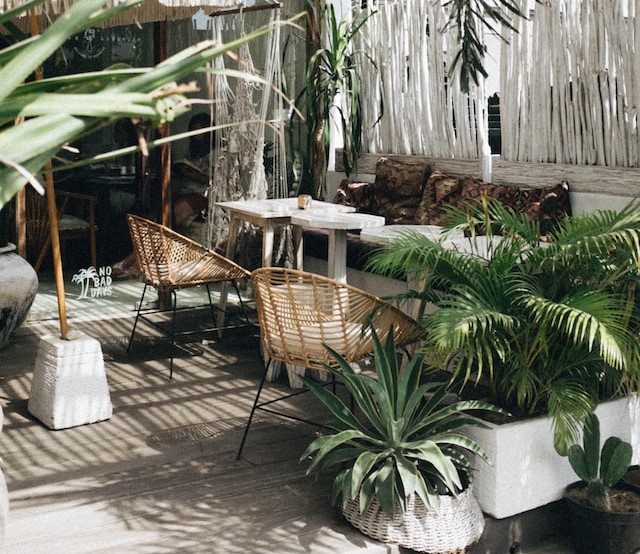Eco-friendly gardening is all about working with nature, not against it. So abandon your visions of a well-manicured garden and a shed full of expensive gardening tools and open your eyes to the array of small changes you can make that will have a big difference on your local ecosystem.
1) Less Mowing, More Growing!
Mowing your lawn less often will not only reduce your electricity bills but it will also help create crucial habitats and food sources for a huge selection of wildlife. By leaving just a small patch of your garden to grow naturally with tall grasses, wildflowers and dead logs, you can help create habitats for insects, reptiles, amphibians and small mammals so they can hide from predators and raise their young.
Planting plants that are native to your area will also help to boost your local ecosystem. They will have adapted to your local climate and soil conditions, making them easier to care for and grow. Don’t forget to plant some wildflower seeds to attract bees and other tiny pollinators too!
2) Reuse and Recycle
Another key element of sustainable gardening is reducing waste. Plenty of household items that would usually end up in landfill can actually be used to enhance your outdoor space. Bricks can become hedgehog homes, bin lids, washing up bowls and broken crockery can become bird baths or mini ponds and twigs and leaves can be come minibeast shelters. You can even fill old plastic bottles and cartons with bird food to create your very own recycled bird feeders!
By providing wildlife with food and shelter, particularly during the harsher winter months, you can be the difference between life and death for many animals. Your support can also help to create a balanced ecosystem and contributes to your overall local biodiversity.
While enhancing your garden, it is also important to think before you buy new things. Gardening can be expensive, and if you want to reduce your environmental impact, you need to start by cutting costs. Try to get your tools and garden furniture second-hand if you can, or if you really need to buy new, try to choose sustainably-made, easily recyclable products that support your local environment.
3) Conserve Water
Water is a finite resource, and without proper management, it will become scarce and have huge consequences on our planet. To combat this, ensure you’re watering your plants correctly and conserving as much water as possible. If you have a large collection of plants that need watering, you could try investing in a water butt or other type of large container that can catch rainwater.
By reducing your water consumption, you help to keep more water in our ecosystems and in turn, reduce your carbon footprint!
4) No More Pesticides
The chemicals used in synthetic pesticides can pose a variety of issues to your local wildlife and biodiversity, including soil damage and water source pollution. Not only are these chemicals toxic to many organisms that live in our gardens, but they are also extremely energy intensive to produce and so should only be employed as a last resort.
You can also protect your local wildlife by opting for organic pest control methods like neem oil for insect management. Anyway, by encouraging wildlife to pass through your garden, they will do the pest control for you!
5) Compost, Compost, Compost
Composting kitchen scraps and garden waste is an easy way to reduce landfill waste and enrich your local soil. Composting also helps to conserve natural resources by recycling organic materials back into the soil, reducing the need for chemical fertilisers and new raw materials.
The nutrients from the compost helps to improve the soil’s structure and fertility, helping plants grow in the process and contributing to an overall healthier environment.
Supporting your local ecosystem and attracting wildlife to your garden is an experience that benefits both your environment, and your own well-being. By following these easy sustainable gardening tips, you can help promote biodiversity in your local area and play a valuable role in the fight against climate change – it’s a no brainer!

